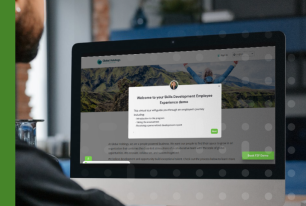How People Science Can Support Climate Change Initiatives
Changing the world starts with changing human behavior. Learn how people science can help us win in the race against climate change.
Share
Egypt has been selected as the host of the upcoming UN Climate Change Conference 2022 (COP27) and UAE is to host the next one (COP28). Both Middle Eastern countries chosen to host the most important environmental event in the world signifies the region’s unwavering commitment to building a better world. For me, it goes even further than the country’s commitment. Humans have made so much in the world—civilization, technology, and so on. Yet, many of our activities also unknowingly contribute to many problems globally, ranging from social to environmental issues. To make a change, we need to dig deeper into the root of the cause: human behavior.
My region's commitment to taking a meaningful climate change action means that we are also committed to changing people’s mindsets, so they behave differently and start being mindful of the consequences of their actions. And in this blog, I want to show you how our people science can make a difference.
The two coins of human behavior
Humans tend to have the tendency to pursue self-interest over the common good. The most tangible evidence, yet most people do not even realize, is over-consumption. For instance, half of the world’s cobalt in the battery of our electronic goods comes from the Democratic Republic of Congo, where it is mined by child laborers. Yet, even given the fact that most smartphones, vehicles, and laptops are powered by child labor, many people keep buying the latest gadgets to follow the trends rather than stick to the still perfectly fine ones despite the outdated models.
That is the bad news. The good news is that human behavior is also susceptible to influence and change, and this may be the key answer to the climate crisis. According to the United Nations (UN), we only have less than a decade to prevent the irreversible damage due to climate change, so this issue is undoubtedly serious and urgent. For as long as we can change human behavior and mindset, we still have a chance to delay the inevitable crisis—the time to take that action is now.
We only have less than a decade to prevent the irreversible damage due to climate change, so this issue is undoubtedly serious and urgent.
How leaders can use people science to shape the behavior toward climate change
- Change the behaviors that contribute to the climate change
To change the behavior, you need to understand it first—why people do certain things and if there are any similar patterns across a bigger group of people. To understand human behavior, organizations need data and actionable insight to understand people enough to be able to eventually set a holistic course of action. People insight can be a powerful tool that can positively change many things, from businesses to societal issues. - Rebuild the connection among all of us
Connection. Without it, there is no way people can be aligned within any mission. Leaders need to continuously reinforce the importance of the connection between us, humans, and the place where we live in. Find a shared purpose to bridge a gap between all of us and the planet to improve livelihood and the wellbeing of humans and the earth. In the end, don’t we all want to live in a better world? - Educate with a message that targets societal values and norms
Psychologists agree that ongoing behavioral interventions that focus on the effect on the societal values and norms are more effective than mere conservation efforts. Organizational leaders need to show to their people that our actions lead to consequences, hence it is important to be conscious of our choice. Build a meaningful Corporate Social Responsibility and continuously educate your people about the impact of each action.
Many people forget that climate change is also a human behavior issue, and addressing this issue using people science can be helpful. I am calling all leaders to make a change and lead with consciousness urgently, so we can sustain the world and offer our future generations of leaders and decision-makers a better place to live in.
Learn how SHL’s people science helps organizations around the globe to change lives and the world of work.









